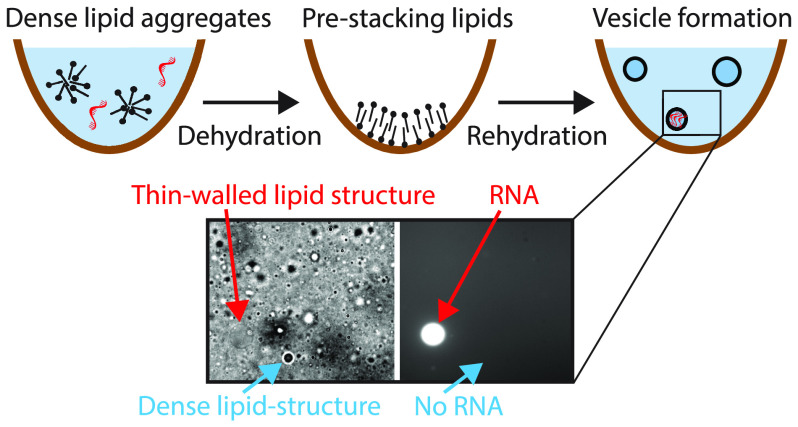- Record: found
- Abstract: found
- Article: found
Dehydration Enhances Prebiotic Lipid Remodeling and Vesicle Formation in Acidic Environments

Read this article at
Abstract

The encapsulation of genetic polymers inside lipid bilayer compartments (vesicles) is a vital step in the emergence of cell-based life. However, even though acidic conditions promote many reactions required for generating prebiotic building blocks, prebiotically relevant lipids tend to form denser aggregates at acidic pHs rather than prebiotically useful vesicles that exhibit sufficient solute encapsulation. Here, we describe how dehydration/rehydration (DR) events, a prebiotically relevant physicochemical process known to promote polymerization reactions, can remodel dense lipid aggregates into thin-walled vesicles capable of RNA encapsulation even at acidic pHs. Furthermore, DR events appear to favor the encapsulation of RNA within thin-walled vesicles over more lipid-rich vesicles, thus conferring such vesicles a selective advantage.
Abstract
Dehydration/rehydration events can yield protocells with enhanced RNA encapsulation, even under acidic conditions. This bolsters the importance of surficial environments for protocell formation.
Related collections
Most cited references53
- Record: found
- Abstract: found
- Article: not found
Fiji: an open-source platform for biological-image analysis.
- Record: found
- Abstract: found
- Article: not found
Group selection of early replicators and the origin of life.
- Record: found
- Abstract: not found
- Article: not found